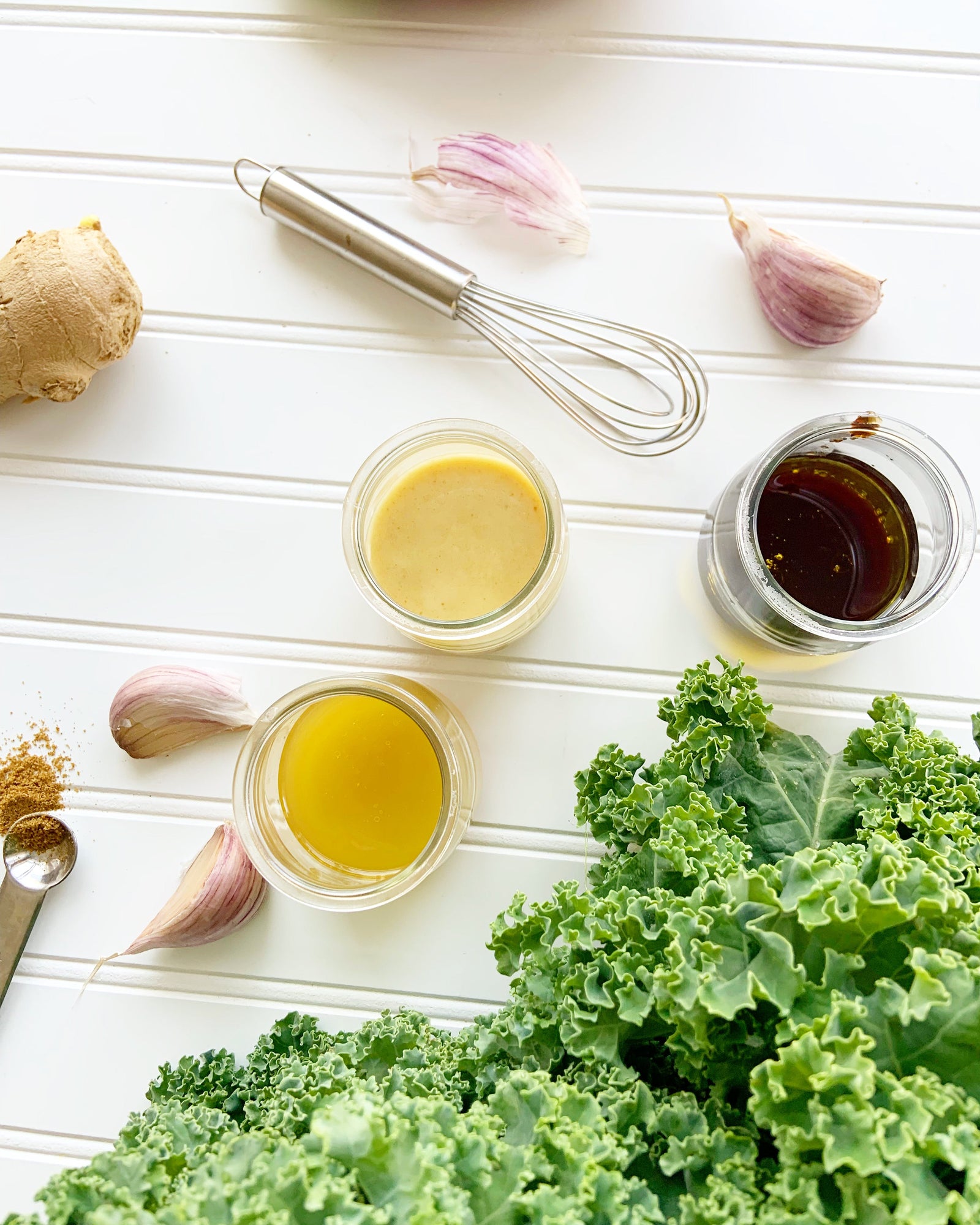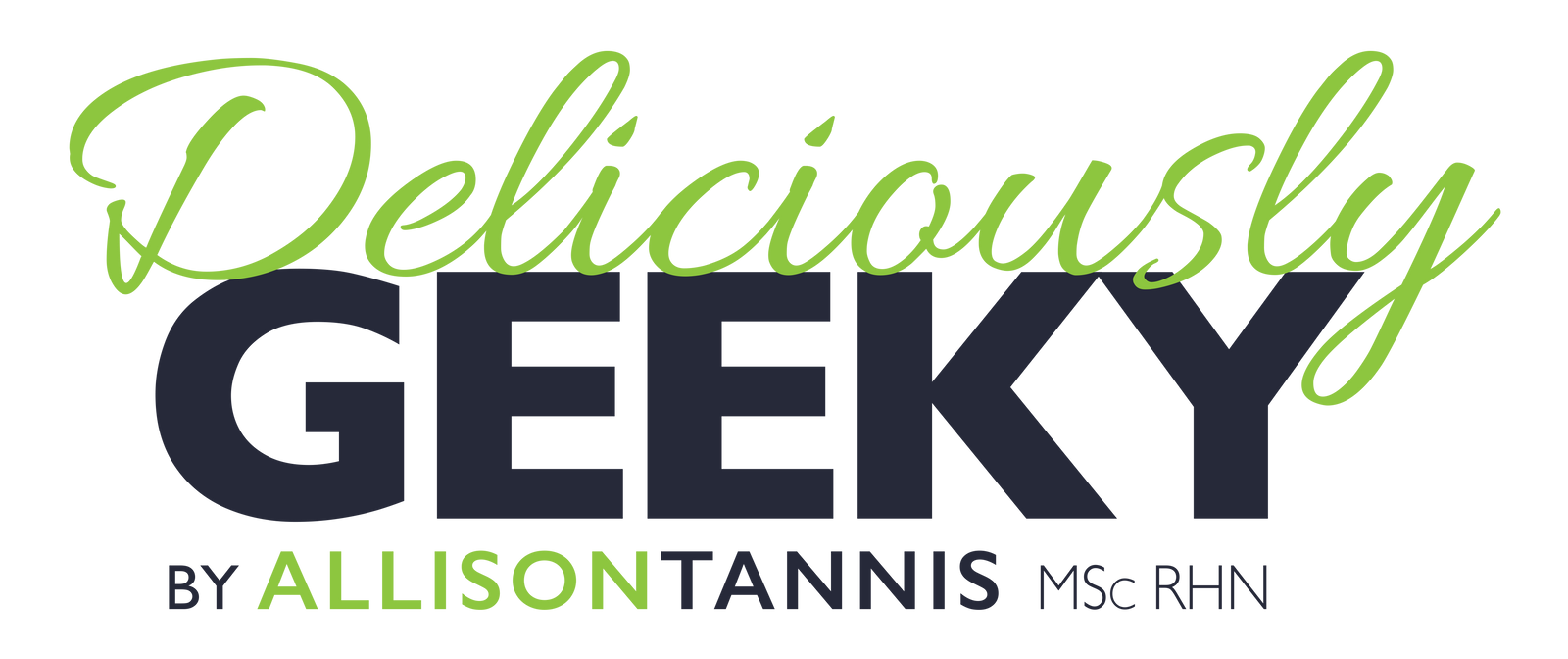Ever had a “gut feeling”? There's an intricate gut-brain connection in your body, and the communication system between your gut and brain is constant. This endless chit-chat between your gut and brain is what scientists call the gut-brain axis. Thus, the gut and brain impact each other greatly. Here are 5 foods that play a role in gut health and mental wellness that research want you to know about.
How is the Gut and the Brain Connected?
The brain and gut are connected both physically and biochemically. One of the largest nerves in your body connects your gut and your brain, it’s called the vagus nerve. There are an estimated 500 million neurons in your gut sending messages to your brain. As for the biochemical connection between your gut and brain, the gut is an impressive producer of neurotransmitters. In the brain, neurotransmitters control emotions and other functions.
3 Ways the Gut-Brain Are Connected
- Physical connection by the Vagus nerve
- Metabolically influence each other with fatty acids, hormones, neurotransmitters
- Immune system regulation

Gut Health Effects Your Mood, Sleep, Pain and Weight
One neurotransmitter worth knowing about is serotonin – which is vital for the processing of emotional regulation, hunger, sleep, and pain, as well as colonic motility and secretory activity in the gut. With sufficient tryptophan present (a precursor to serotonin), a healthy gut can be a huge producer of serotonin. In other words, a happy gut can lead to a happier you. Another type of molecule made in the gut is short-chain fatty acids (SCFAs). Microbes produce butyrate and other SCFAs when they digest fiber. SCFAs have been found in research studies to influence the brain, in particular, helping to reduce appetite.
Gut Health is Important to Your Immune System
Yet, there is another way the gut and brain are connected that may surprise you. The way the gut and the brain communicate is greatly influenced by the immune system. The immune system is an important coordinator between the two. When the microbes in your gut aren’t healthy, it can lead to immune dysregulation. In fact, the microbes in your gut community can regulate brain development, mood, and cognitive function, according to studies. Chronic inflammation not only changes the microbiota composition, but it can also trigger significant and long-lasting behavioral changes, such as the development of cognitive impairment and depression. The immune system is crucial for gut-brain signaling. Reducing inflammation in the gut, and the presence of microbes there that trigger inflammation is important for mental health.
How Your Gut Health Impacts Your Mood
This two-directional communication between the gut and the brain, called the gut-brain axis plays a role in mental health. Evidence from neuroscience research shows the microbiota (the ecosystem of microbes that inhabit the gut), appears to play a major role in the development and maturation of brain systems, as well as in our ability to respond to stress. The microbes in your gut send messages to your brain through the many neurons in the gastrointestinal tract, as well as through neurotransmitters (neuronal system), cytokines (immune system), and hormones (metabolic pathways). With 1 billion people in the world reporting emotional, psychological, and neurological imbalances, it’s imperative to focus on a healthy gut in pursuit of achieving mental health.

How to Help Your Gut-Brain Connection
There are certain foods that scientific evidence suggests are worth eating, and some supplements that research shows play a role in the health of the gut-brain connection:
- Seaweed: High fiber foods, such as nuts, seeds, whole grains, beans, fruits, and vegetables are much discussed as a way to improve mental health. However, the source of fiber has a different level of impact, according to scientists. The best fiber sources were seaweed and mushrooms in a study of Korean volunteers. Fiber influences the diversity of microbes in the gut, ultimately impacting how the immune system is triggered, and the metabolites produced (more SCFAs are linked with better mental wellbeing).
- Green tea or Cocoa: both cocoa and green tea a source of polyphenols that researchers are curiously looking into as a way to battle depression using the gut-brain axis. Polyphenols in the gut with probiotics seem to reduce oxidative stress and balance serotonin metabolism, which are major players in depression.
- Probiotics: as a supplement, human clinical trials suggest probiotics may be worth considering: use of a multi-probiotic supplement was observed in a placebo-controlled trial of healthy adults to improve panic anxiety, neurophysiological anxiety, negative affect, worry, and increase negative mood regulation. Want a great resource about different probiotic species? Check out the Monthly Microbes I created for the International Probiotic Association)

- Salmon: the brain contains a lot of arachidonic acid (AA) and docosahexaenoic acid (DHA), an omega-6 and omega-3 fatty acid, respectively. Omega-3 fatty acids modulate neurobiological processes involved in anxiety and depression. Researchers suggest omega-3s play a role in the ability of the brain to sense free fatty acids, are involved in the endocannabinoid system (inflammation shut off system), and the hypothalamic–pituitary–adrenal axis.
- Eggs: Sources of tryptophan, (eggs, cheese, and turkey are highest, with vegan sources including leafy greens, sunflower seeds, watercress, mushrooms, broccoli, and peas), may help provide more of the building blocks the gut needs to produce serotonin, the happy neurotransmitter.
Based on pieces created by Allison Tannis for Canadian School of Natural Nutrition Distance Education Blog.
More on their site - including 'Are Probiotics Good for You'
References
Gut-microbiome to brain signaling: what happens in vagus. Neuron 2019 Mar 20;101(6):998-1002.
The microbiota and the gut-brain axis in controlling food intake and energy homeostasis. Int J Mol Sci 2021 May 29;22(11):5830.
Microbiota interactions: from gut to brain. LymphoSign 2020 Jan 27;7(1).
Increased colonic propionate reduces anticipatory reward responses in the human striatum to high energy foods. Am J Clin Nutr 2016 Jul; 104(1):5-14.
Tryptophan metabolism and gut-brain homeostasis. Int J Mol Sci 2021 Mar 15;22(6):2973.
Gut-brain relationship: investigating the effect of multispecies probiotics on anxiety in a randomized placebo-controlled trial of healthy adults. J Affect Disord 2019 Jun 1;252:271-277.
The microbiota-gut-brain axis in neuropsychiatric disorders: pathophysiological mechanisms and novel treatments. Curr Neuropharmacol 2018; 16(5):559-573.
Human gut microbiota and mental health: advancements and changes in microbe-based therapeutic interventions. Indian J Microbiol 2020 Dec; 60(4):405-419.
Food for mood: relevance of nutritional omega-3 fatty acids for depression and anxiety. Front Physiol 2018;9:1047.
Sources of dietary fiber are differently associated with prevalence of depression. Nutrients 2020 Sep; 12(9):2813.
The gut microbiota links dietary polyphenols with management of psychiatric mood disorders. Front Neurosci 2019; 13:1196.
Also in Blog

The Microbiome Diet: Gut Health, the Human Microbiome and Your Health
Your guide to the human microbiome, with insights into the Microbiome Diet, and whether it can improve your health, including indigestion.

Why Can't I Sleep: Your Guide to Better Sleep



